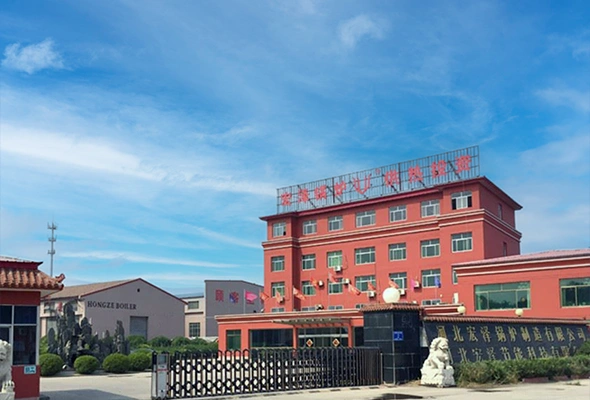
ធ្នូ . 05, 2024 08:07 Back to list
Exploring the Efficiency of Boiler Systems for Heating Oil Applications
Understanding Boiler Hot Oil Systems An Overview
Boiler hot oil systems have become increasingly essential in various industries, particularly those that require precise temperature control, such as food processing, chemical production, and plastics manufacturing. These systems employ thermal oils as heat transfer mediums, providing a more efficient alternative to traditional steam-based systems. In this article, we will delve into the working principles, advantages, applications, and maintenance of boiler hot oil systems.
Working Principles
At the heart of a boiler hot oil system is a thermal oil heater, which heats the oil through combustion or electrical elements. The oil is then circulated through a closed loop, delivering heat to the desired processes. Unlike water, thermal oils have higher boiling points, allowing for operations at elevated temperatures without the risk of vaporization. This characteristic enables industries to operate at temperatures ranging from 300°F to 700°F.
The closed-loop design ensures minimal heat loss, as the oil continuously circulates between the heater and the process equipment. Once the thermal oil reaches the target temperature, it is directed to heat exchangers or process equipment, where it transfers heat to the materials being processed. After losing some heat, the cooled oil returns to the heater to be reheated, completing the cycle.
Advantages of Boiler Hot Oil Systems
1. Higher Operational Efficiency One of the primary benefits of using thermal oil systems is their operational efficiency. The ability to maintain high temperatures without high pressure significantly reduces energy consumption compared to traditional steam boilers.
2. Precise Temperature Control Hot oil systems provide excellent temperature control, allowing industries to fine-tune their processes. This precision is crucial in applications like food processing, where temperature fluctuations can affect product quality.
3. Safety Since thermal oils operate at lower pressures compared to steam, there is less risk of catastrophic failures or explosions. Additionally, thermal oils do not corrode pipes or equipment as quickly as water-based systems, reducing maintenance costs.
4. Flexibility The versatility of thermal oil systems allows them to be used in various applications, from high-temperature manufacturing processes to heat recovery systems. Their ability to function in diverse environments makes them highly valuable.
Applications
Boiler hot oil systems find applications in numerous sectors
boiler hot oil

- Food Processing In the food industry, maintaining specific temperatures during cooking or heating processes is vital. Thermal oil systems provide consistent and controlled heat, ensuring product safety and quality.
- Chemical Processing Many chemical reactions require precise temperature management. Hot oil systems are ideal for maintaining the necessary temperatures while managing chemical stability.
- Plastics Manufacturing The production of plastics involves heating processes where thermal oil systems offer consistent heat transfer crucial for processing polymers.
- Pharmaceuticals In pharmaceutical manufacturing, maintaining specific temperatures is critical for drug formulation. Thermal oil heaters ensure that processes remain stable and efficient.
Maintenance Considerations
While boiler hot oil systems offer many advantages, regular maintenance is crucial for optimal performance and longevity. Key maintenance practices include
1. Regular Inspections Routine inspections should be conducted to check for leaks, wear, and tear on critical components such as pumps, valves, and heat exchangers.
2. Oil Quality Monitoring Over time, thermal oils can degrade due to oxidative reactions. Regular monitoring of oil properties, including viscosity and acidity, is necessary to ensure efficient heat transfer.
3. Cleaning and Flushing Periodic flushing of the system helps remove accumulated sludge or contaminants, ensuring smooth operation.
4. Safety Checks Regular checks of safety devices, including pressure relief valves and temperature controls, help prevent accidents and overpressure situations.
Conclusion
Boiler hot oil systems represent a significant advancement in heat transfer technology, providing numerous advantages over traditional steam systems. With their efficient performance, ability to maintain precise temperatures, and versatility across various applications, they are driving innovation in many industries. However, careful maintenance and monitoring are essential to optimize their performance and ensure safe operations. As industries continue to evolve, the role of boiler hot oil systems will only become more pronounced, highlighting the importance of understanding their functionality and benefits.
-
How to Maintain a Steam Boiler Expert Tips for Efficiency & Longevity
NewsApr.29,2025
-
Professional Steam Boiler Service AB Expert Maintenance & Repair
NewsApr.29,2025
-
Hot Water Steam Boilers Efficient Heating Solutions & Expert Tips
NewsApr.29,2025
-
Hot Water Boiler Capacity Calculation Guide Efficient Design Tips
NewsApr.28,2025
-
How to Drain a Steam Boiler Step-by-Step Safety Guide
NewsApr.28,2025
-
How to Install a Hot Water Boiler Optimal Pressure & Efficiency Guide
NewsApr.28,2025
Related PRODUCTS






















